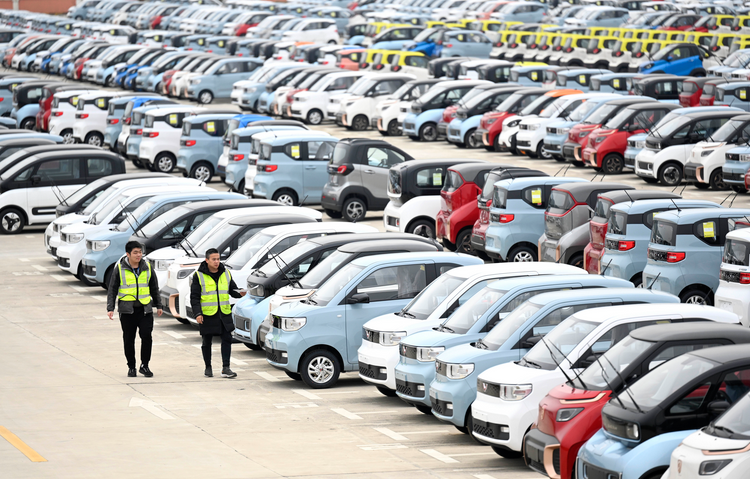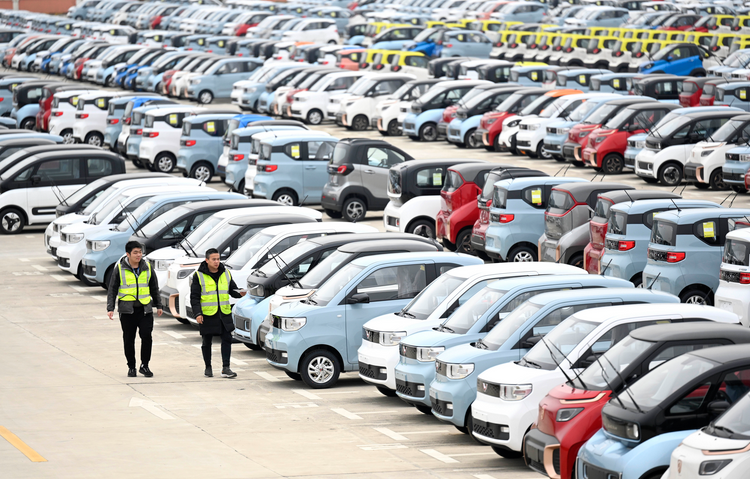
Workers check new energy vehicles at a logistics park in Liuzhou, south China's Guangxi Zhuang Autonomous Region, March 8, 2021. (Photo by Li Hanchi/Xinhua)
BEIJING, Aug. 6 (Xinhua) -- China's new energy vehicle (NEV) industry has embarked on a fast track of development amid industrial upgrading and increasing demand for green consumption, reported the Xinhua-run Economic Information Daily on Friday.
In the first half, NEV production and sales in China amounted to 1.215 million units and 1.206 million units, respectively, both showing a year-on-year increase of two times. Compared with the same period of 2019, NEV production and sales during the January-June period surged 94.4 percent and 92.3 percent, according to data from the China Association of Automobile Manufacturers (CAAM).
China's NEV industry has seen improved technologies, industrial system and more competitive enterprises over the past years.
In November last year, China unveiled a development plan for its NEV industry from 2021 to 2035, according to which NEVs are expected to represent 20 percent of the sales of new vehicles by 2025, and electric vehicles will become the mainstream of newly sold vehicles by 2035.
The development of NEV sector holds the key to the transformation of the auto industry, said Fu Bingfeng, executive vice president and secretary general of CAAM, adding that as the number of NEVs increases, the auto industry will make its due contribution to the fulfillment of the goal of peaking carbon dioxide emissions by 2030 and achieving carbon neutrality by 2060.
By the end of May this year, China had 5.8 million units of NEVs, accounting for about 50 percent of the world's total, showed data from the CAAM.
Meanwhile, China's NEV supporting facilities are being optimized. As of April, 65,000 charging stations, 644 battery swap stations, and 1.87 million charging piles have been built across China, with a fast charging network covering 176 cities and more than 50,000 kilometers of highway.
Although the NEV industry enjoys sound development momentum, problems such as inadequate innovation in core technologies and laggard infrastructure construction remain salient, said Xin Guobin, vice minister of industry and information technology.
To propel high-quality development of NEVs, the Ministry of Industry and Information Technology said that it would further strengthen quality supervision over NEVs, promote integration of electrification and intelligent connected vehicle technologies, improve services concerning charging and parking, make public transportation more electrified, and upgrade supporting industrial chain. (Edited by Su Dan with Xinhua Silk Road, sudan@xinhua.org)




 A single purchase
A single purchase









